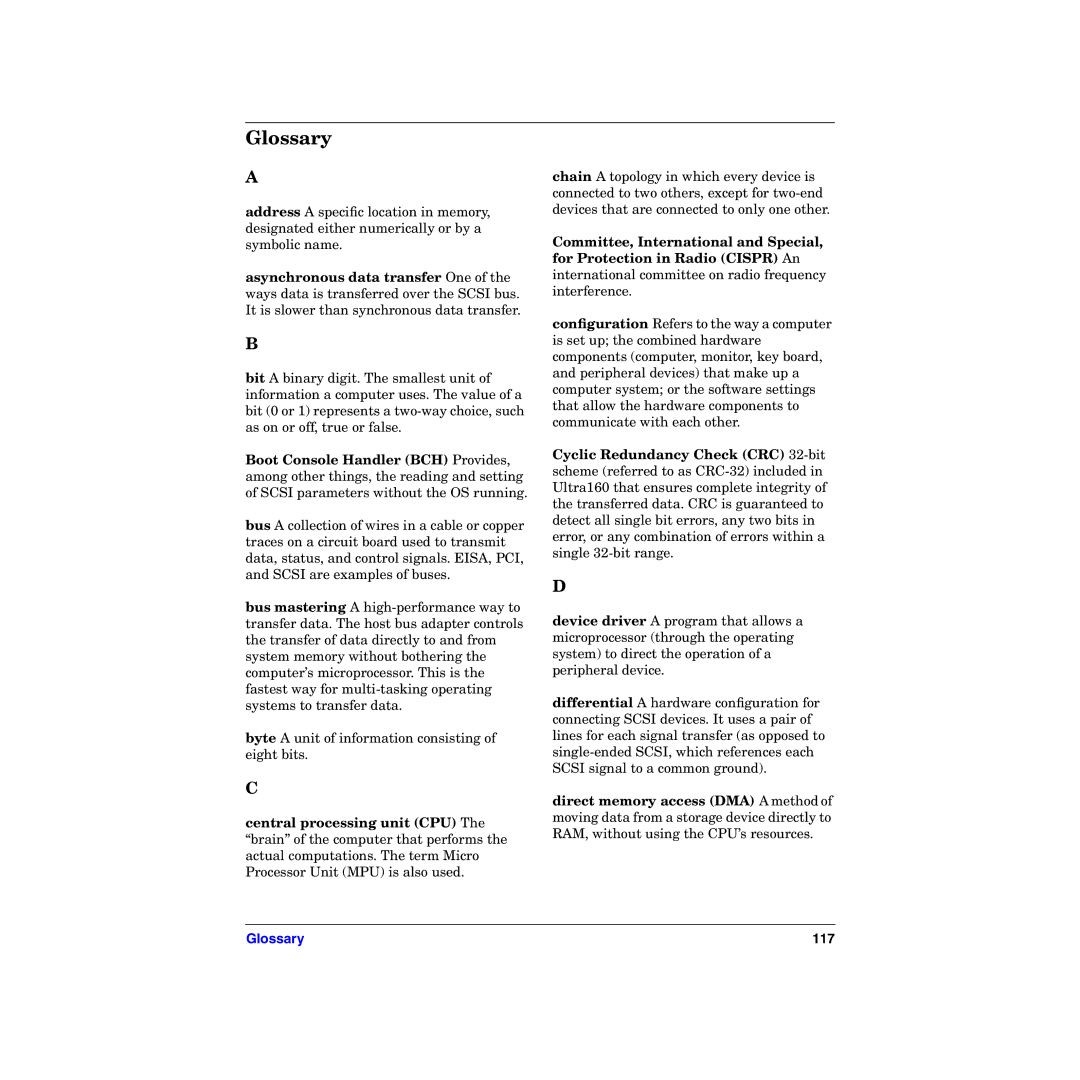
Glossary
A
address A specific location in memory, designated either numerically or by a symbolic name.
asynchronous data transfer One of the ways data is transferred over the SCSI bus. It is slower than synchronous data transfer.
B
bit A binary digit. The smallest unit of information a computer uses. The value of a bit (0 or 1) represents a
Boot Console Handler (BCH) Provides, among other things, the reading and setting of SCSI parameters without the OS running.
bus A collection of wires in a cable or copper traces on a circuit board used to transmit data, status, and control signals. EISA, PCI, and SCSI are examples of buses.
bus mastering A
byte A unit of information consisting of eight bits.
C
central processing unit (CPU) The “brain” of the computer that performs the actual computations. The term Micro Processor Unit (MPU) is also used.
chain A topology in which every device is connected to two others, except for
Committee, International and Special, for Protection in Radio (CISPR) An international committee on radio frequency interference.
configuration Refers to the way a computer is set up; the combined hardware components (computer, monitor, key board, and peripheral devices) that make up a computer system; or the software settings that allow the hardware components to communicate with each other.
Cyclic Redundancy Check (CRC)
D
device driver A program that allows a microprocessor (through the operating system) to direct the operation of a peripheral device.
differential A hardware configuration for connecting SCSI devices. It uses a pair of lines for each signal transfer (as opposed to
direct memory access (DMA) A method of moving data from a storage device directly to RAM, without using the CPU’s resources.
Glossary | 117 |
